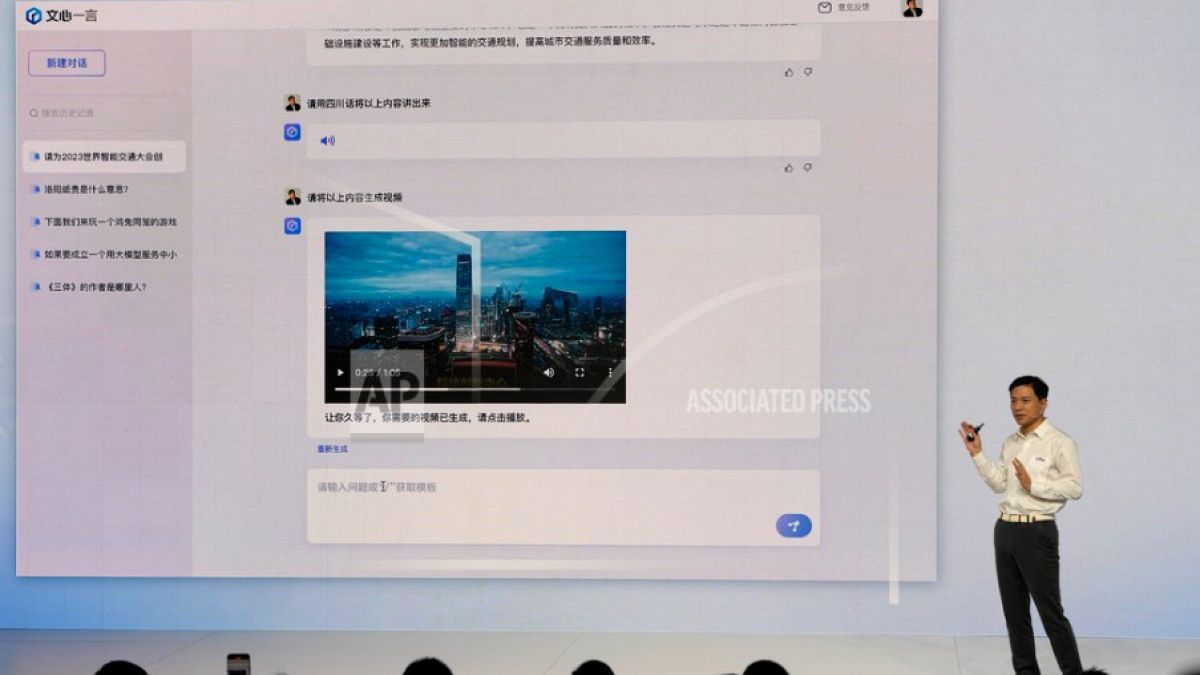Ernie Bot is Chinese search giant Baidu’s answer to OpenAI’s ChatGPT and Google’s Bard.
Chinese search engine giant Baidu has unveiled its answer to ChatGPT - with an artificial intelligence (AI) chatbot called Ernie Bot.
The company held a product launch meeting behind closed doors for a number of interested companies, after it was originally supposed to have been live-streamed to the public, Reuters reports.
The news agency said Baidu’s Hong Kong-listed shares actually fell as much as 4.5 per cent on Monday due to the change of format
Investors already appeared to be disappointed by the AI chatbot following a pre-recorded video presentation on March 16.
At the time, Baidu’s CEO Robin Li said Ernie Bot was still not perfected, but the company went ahead with presenting it due to high demand.
Shares dropped 10 per cent after the pre-recorded demonstration was aired instead of a live demonstration that many observers had expected.
During that demonstration, Ernie Bot was asked questions about a famous Chinese science-fiction novel - Liu Cixin’s The Three-Body Problem - and was asked to make an image based on prompts.
Ernie stands for Enhanced Representation through Knowledge Integration.
How does Ernie Bot stand up to OpenAI’s ChatGPT and Google’s Bard?
Li said at the launch that Ernie Bot was the “result of many years of hard work” at Baidu, which had “persisted in investing in artificial intelligence”.
Li said 650 companies had signed up to use the bot, which can be used in a variety of applications such as searches, AI cloud, autonomous driving and in smart devices.
The first version was developed in 2019, he said. In February, Baidu mentioned that the internal testing of its Ernie Bot was almost complete.
The company, known in China for its search engine, has shifted its focus in recent years to artificial intelligence, including working on autonomous driving technology and other AI applications.
The announcement of Baidu’s chatbot came following the explosion of popularity surrounding OpenAI’s ChatGPT. The technology behind that has been incorporated into a number of Microsoft products, including its search engine Bing.
Google meanwhile revealed its own answer to ChatGPT with Bard, recently making it more widely available for testing.
Avoiding political questions
While ChatGPT and Bard have both shown impressive results in testing, much less information is available around Ernie Bot.
In China, digital companies are under constant pressure from the government to eradicate any content deemed sensitive or politically incorrect.
The challenge for developers in the country therefore is to come up with a conversational bot that performs well but does not deviate from the strict content framework allowed.
For example, when asked whether Chinese President Xi Jinping is a good leader, a conversational robot designed by the prestigious Tsinghua University in Beijing just asks the user to "enter a new query".
And tests conducted by Reuters reportedly show that while Ernie has good command of the Chinese language, it produces factual errors and avoids political questions.
"Regulation and content censorship in China" are clearly obstacles, said Lauren Hurcombe, a technology specialist at law firm DLA Piper.
As a result, Chinese firms have "much less data" than their Western competitors to feed and train their systems, Hurcombe told AFP.
The bot, which operates in Mandarin, is aimed solely at the Chinese market. No public launch date has been announced for it, but more companies will be able to sign up to test the industry-focused version on March 31.



